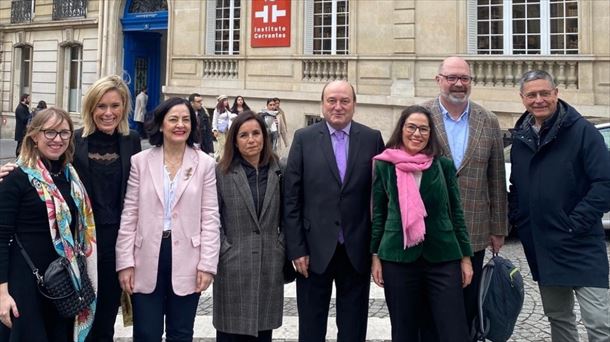The financial officials of the federal states will discuss the financial settlement negotiations with the federal government today, Friday, at a conference in Burg Schlaining in the south of Burgenland. Unsurprisingly, it is about the demand for more financial resources to fulfill the statutory tasks, as explained by Governor Hans Peter Doskozil (SPÖ), currently chairing the Governors’ Conference. Finance Minister Magnus Brunner (ÖVP) slowed down in advance.
The focus is on health, care, education and climate. According to Doskozil, the federal states are also calling for clarity on the future criteria of the Austrian Stability Pact as soon as possible. According to the governor, financing additional measures in the interest of people, the economy and the climate must be possible without the threat of sanctions.
Other themes are the outstanding payments from the federal government for the Covid-19 measures pre-financed by the federal states and the further development of the colleges.
More money just “no bargaining power”
Treasury Secretary Brunner, as a negotiating partner on the federal side, responded Friday, reiterating his well-known statement that simply demanding more money is not a negotiating position. “Financial settlement is a give and take, and not just of the federal government,” he said on the Treasury Department’s “Finance Friday” podcast.
In fact, the financial equalization stipulates that the federal government is entitled to two-thirds and the states, municipalities and cities to about one-third of all common federal taxes. “After three years of crisis, this relationship has shifted significantly,” he stressed.
Has the federal government already taken on enough?
The federal government increased the revenue shares of the municipalities at the expense of the federal government by €675 million, but also adopted parts of the 2020 tax reform and the eco-social tax reform through major changes, amounting to another €400 million. It is also a fact that the federal government “absolutely took the brunt of the crisis management” and spent a lot of money to deal with the crisis.
“The financial situation of the federal states and municipalities is also quite stable after three years of crisis, precisely because of this approach,” emphasized the Minister of Finance. At the same time, the costs of the past also limited the federal government’s room for maneuver for the future.
Vienna wants more money for the construction of the metro
Another demand came from the state of Vienna on Friday: Finance Councilor Peter Hanke (SPÖ) wants to talk to the federal government about financing the metro expansion, splitting the costs 50:50. This was only confirmed in November by the National Council for the fourth and fifth expansion phases, with a total cost of €5.741 billion. But the problem now is inflation. The construction cost index in civil engineering has risen by 20 percent in one year, Hanke explains to the “Standard”.
“Even under Finance Minister Gernot Blümel, we have built in an extra component: if inflation exceeds two and a half percent in three years, this must lead to negotiations. We will take care of that after the financial settlement negotiations’, according to the city council.
Source: Krone
I am Ida Scott, a journalist and content author with a passion for uncovering the truth. I have been writing professionally for Today Times Live since 2020 and specialize in political news. My career began when I was just 17; I had already developed a knack for research and an eye for detail which made me stand out from my peers.



